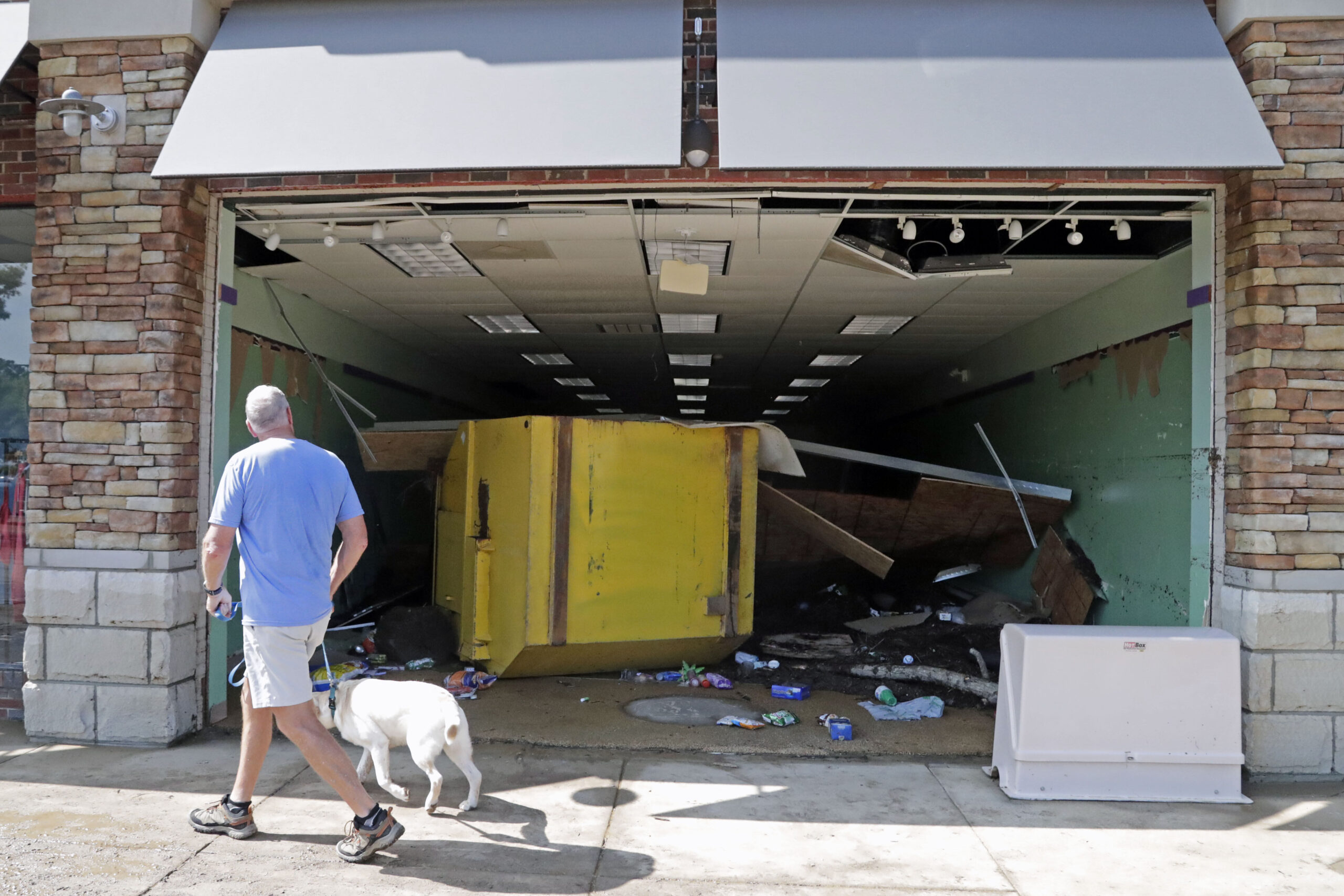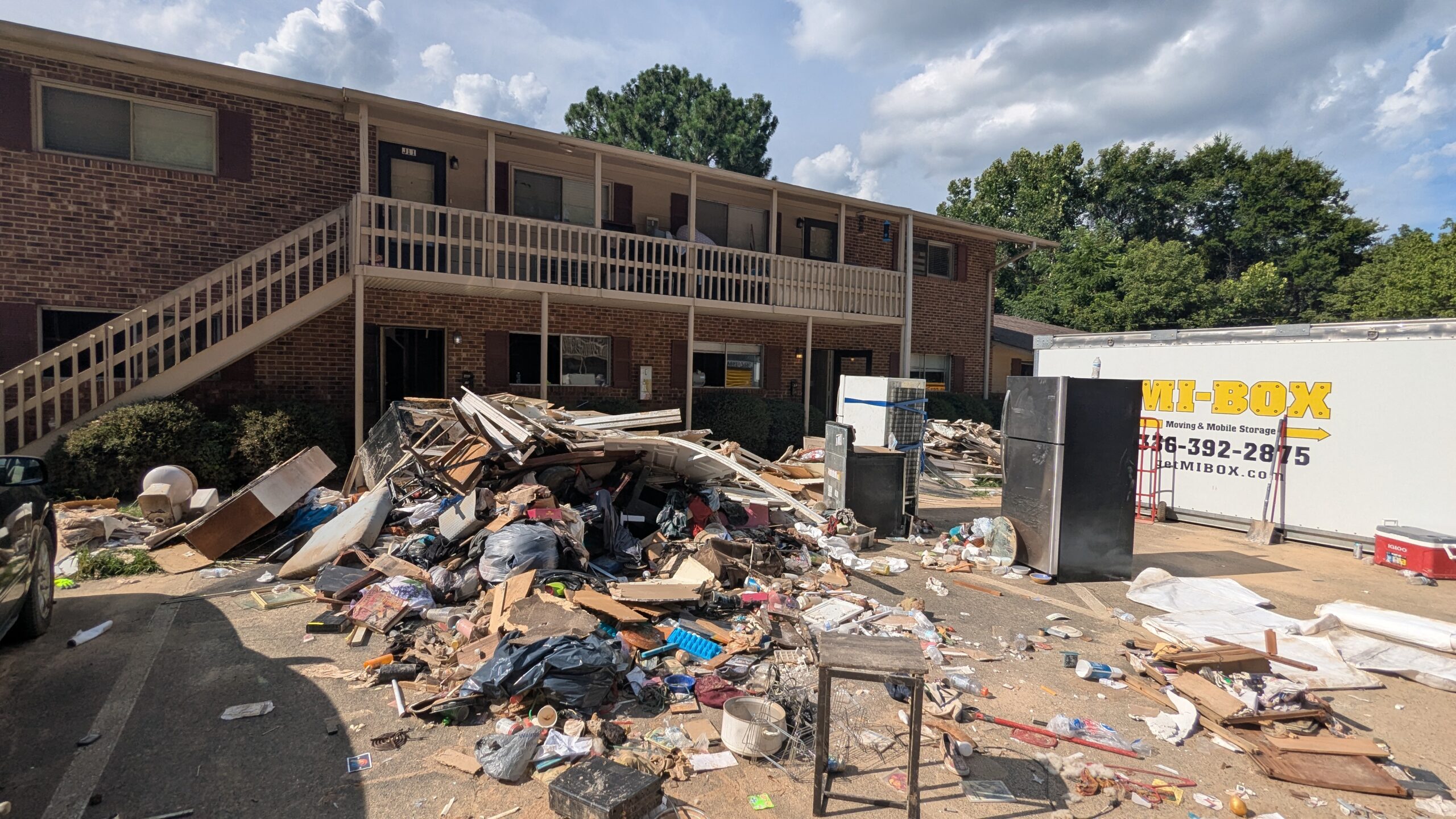Nearly a full month removed from Tropical Depression Chantal’s significant rain and subsequent flooding, victims in Orange County and other impacted regions have a new way to seek individual relief.
North Carolina Gov. Josh Stein officially declared the storm a Type I State Disaster on Tuesday, with the executive order activating state-funded individual assistance grants for victims who suffered injuries or lost personal property in the flash flooding. Orange County is among the communities included in the disaster area, as well as Durham, Chatham, Alamance, Wake, Caswell, Granville and Person counties.
“This disaster declaration unlocks access for people to apply for state-funded individual assistance as they continue to rebuild, and I encourage folks to see if the resources available are a good fit for them,” Stein said in a release from his office. “Chantal was devastating for central North Carolina, and initial damage assessments have made clear that a Federal Major Disaster Declaration is needed to help expedite federal aid for repairing roads and rebuilding critical infrastructure.”
The grants, which will be provided through North Carolina’s emergency assistance fund, can be used for needs like temporary housing and rental assistance, replacement of personal property, medical expenses, burial expenses for deaths resulting from the flooding and more. Individuals and families looking to qualify are required to visit one of the disaster recovery centers established in the wake of the storm. Orange County’s opened at the Drakeford Library Complex in Carrboro on July 29, while Alamance County’s is in Burlington at 319 North Graham-Hopedale Road and Durham County’s is at 221 Milton Road. The centers are also where the Small Business Administration has staff on hand to assist businesses with their disaster loan applications. The centers will be open through August 30.
As part of the governor’s call to the federal government for help offering disaster recovery resources, Stein’s office pointed to how central North Carolina’s preliminary damage assessments exceed the minimum indicators to qualify for a Federal Major Disaster Declaration. That declaration from FEMA would authorize more public assistance to the local governments of impacted communities and help offset the cost of rebuilding infrastructure, roads and utilities damaged from the floodwaters. Stein’s office said early estimates report central North Carolina suffered $42 million in public assistance damages. Orange County alone estimates $28.2 million in such damages, while overall property damage is projected to exceed $56 million.
Wednesday’s release also urged FEMA to activate its Hazard Mitigation Grant Program for affected North Carolinians. The program — which would require a presidentially declared disaster — provides federal funding to state, local and tribal governments for rebuilding or repairing damage “in a way that reduces, or mitigates, future disaster losses in their communities.”
The Type I State Disaster designation comes after Stein signed an emergency declaration on July 16 to open the flow of recovery resources following the expiration of the local governments’ own states of emergency and initial damage assessments. Orange and Durham counties suffered some of the most damage as the intense rain and surging flash floods led to six confirmed storm-related deaths, only one of which happened in Orange County. According to the latest local executive report on storm response, roughly 190 residents were reported to the county government as displaced — although that estimate is expected to be far lower than those impacted, since Orange County’s assessment shares 448 residential properties suffered some kind of flood damage. The Town of Chapel Hill and Orange County’s Department of Social Services are still providing transitional housing to dozens of residents whose homes are not safe to return to and who lack other options.
Orange County community members in need of assistance, like emergency temporary housing, financial, or material support, are encouraged to call the local Department of Social Services at 919-245-2800 to be connected to resources. Meanwhile, flood victims can call the North Carolina Emergency Management individual assistance hotline at 919-825-2378 or visit the state government’s Chantal webpage for general inquiries on individual relief.
Featured image via Alicia Stemper/Orange County Sheriff’s Office.
Chapelboro.com does not charge subscription fees, and you can directly support our efforts in local journalism here. Want more of what you see on Chapelboro? Let us bring free local news and community information to you by signing up for our newsletter.












